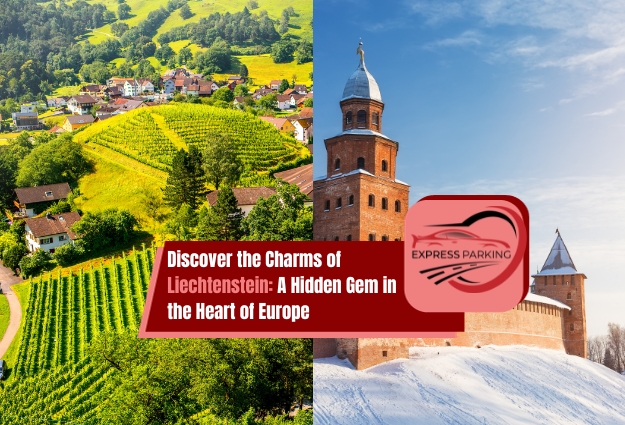Embark on a journey through the heart of Europe, where the captivating landscapes of Liechtenstein unfold like pages from a storybook. Tucked away between the majestic peaks of the Alps and bordered by the scenic Rhine River, Liechtenstein is a sovereign principality that beckons travellers with a promise of enchantment.
Despite its modest size, this hidden gem manages to encapsulate the very essence of European allure, inviting visitors to immerse themselves in a tapestry of rich history, unspoiled natural beauty, and a warm, welcoming ambiance.
As you traverse the winding roads that snake through lush valleys and ascend to dizzying heights, Liechtenstein reveals itself as a land where time seems to stand still, allowing you to step back and appreciate the simplicity and authenticity that define its character.
From the mediaeval fortresses that proudly crown its hills to the meticulously preserved villages nestled in the embrace of pristine landscapes, Liechtenstein emerges as an immersive haven that offers respite for those seeking a unique travel experience.
| At Express Parking, we redefine the travel experience with our premium parking deals for meet & greet heathrow t3 . Say goodbye to the stress of finding parking spaces and navigating crowded lots. |
Short History of Liechtenstein
The history of Liechtenstein can be traced back to the Roman Empire, where the region that now comprises the principality was part of the larger Swabian League. In 1699, the territories of Schellenberg and Vaduz were united under the lordship of Prince Johann Adam Andreas of Liechtenstein, a member of a prominent Austrian noble family.
This marked the birth of the principality, which would later take its name from the ruling family.
Throughout the 18th and 19th centuries, Liechtenstein navigated the complex political landscape of Europe.
Notably, during the Napoleonic era, the principality managed to maintain its independence despite being sandwiched between larger powers. In 1806, it became a sovereign state within the Confederation of the Rhine, securing its status as a distinct entity.
Liechtenstein’s modern era saw the principality navigating the challenges of the 20th century, including both World Wars. Despite being landlocked between two warring nations, Liechtenstein managed to maintain its neutrality and emerged relatively unscathed.
Vaduz Castle
| Our professional and courteous valet attendants are dedicated to providing top-notch service. With Heathrow Airport valet parking, you can trust that your vehicle is in safe hands. |
Standing proudly atop a lush hill overlooking the charming capital of Vaduz, Vaduz Castle is not merely a fortress; it is a living testament to Liechtenstein’s rich history and enduring charm.
This mediaeval marvel, perched at an altitude of 120 metres, is more than just a picturesque backdrop; it’s a symbol of the principality’s resilience and regal heritage.
Constructed in the 12th century, Vaduz Castle has withstood the tests of time, bearing witness to centuries of political and social change.
Originally serving as a fortress to guard the region against external threats, the castle has evolved over the years and now stands as a private residence of the Liechtenstein royal family.
Vaduz Castle is the official residence of the Prince of Liechtenstein, it is not open to the public. Despite its inaccessibility, the castle’s exterior and the panoramic views from its vicinity make it a must-see destination for any visitor to Liechtenstein.
For those seeking a closer encounter with this regal landmark, a hiking trail leads to Vaduz Castle from the heart of Vaduz. The trail offers a moderately challenging yet rewarding trek, with each step revealing new perspectives of the castle and the surrounding landscape.
The journey to the top is an adventure in itself, allowing visitors to immerse themselves in the natural beauty that surrounds this historic gem.
Small Town Charms
While Liechtenstein may be a small country in size, its villages radiate a unique charm that captivates visitors with a blend of history, Alpine beauty, and warm hospitality.
Stepping into the small towns of Liechtenstein feels like entering a storybook setting, where each cobblestone street and traditional building tells a tale of the country’s rich heritage.
Triesenberg: A Highland Haven
Nestled on the slopes overlooking the Rhine Valley, Triesenberg is a highland gem that offers not only stunning panoramic views but also a glimpse into Liechtenstein’s rural life. The traditional architecture, with wooden chalets and flower-filled window boxes, creates a postcard-perfect scene. Wander through the narrow streets, where time seems to slow down, and you’ll encounter friendly locals who are eager to share stories of their town.
Balzers: Where History Meets Tranquility
With its well-preserved historical buildings and a backdrop of rolling hills, Balzers is a testament to Liechtenstein’s commitment to preserving its cultural heritage. The town’s centrepiece is Gutenberg Castle, a mediaeval fortress that stands proudly atop a hill.
Walking through the old town, visitors can appreciate the harmonious blend of history and tranquillity, making Balzers a peaceful retreat for those seeking a break from the hustle and bustle of modern life.
Safe and Welcomes Vibes
When it comes to planning a trip, safety and hospitality are paramount considerations. Liechtenstein, although one of the smallest countries in the world, stands tall as a beacon of safety and friendliness, making it an ideal destination for travellers seeking a secure and welcoming haven.
Liechtenstein boasts remarkably low crime rates, making it one of the safest countries globally. The low population density, strong community bonds, and efficient law enforcement contribute to an environment where visitors can explore with peace of mind.
The principality takes pride in maintaining a clean and well-kept environment. The streets are tidy, public spaces are well-maintained, and there’s a general respect for the surroundings.
